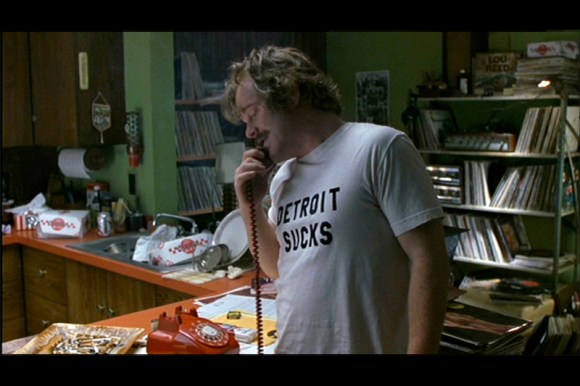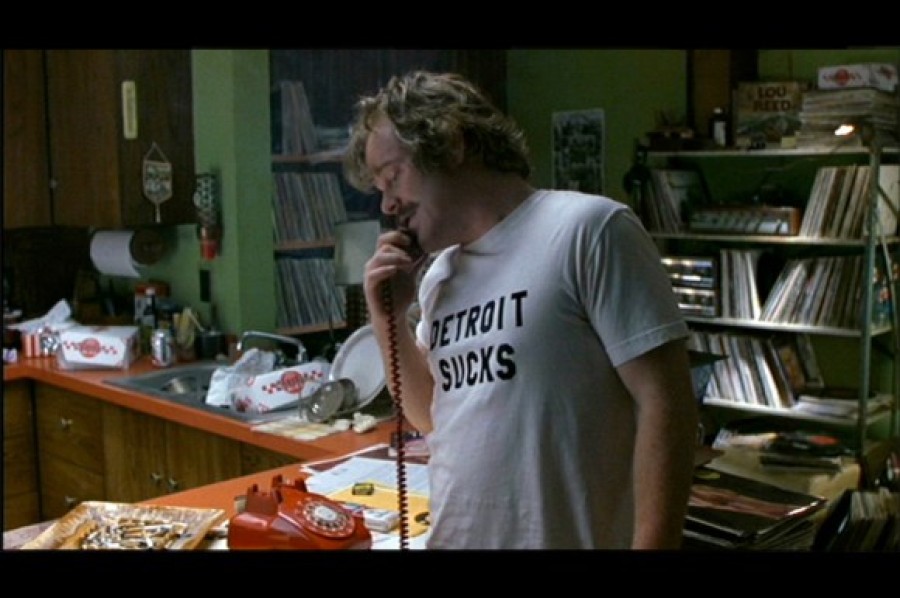‘Great art is about guilt and longing’
By Jim DeRogatis

‘Great art is about guilt and longing’
By Jim DeRogatis
From the brilliant writer and title character in Capote, to the insecure soundman in Boogie Nights, to the stand-in for cult leader/con man L. Rob Hubbard in The Master, Philip Seymour Hoffman owned any role he took on, earning every accolade he received as one of the finest actors of his generation. For many music lovers, however, he never played a better part or did a role more justice than his turn as the great rock critic Lester Bangs in Cameron Crowe’s Almost Famous.
As was often the case (and never more than with Truman Capote), Hoffman—who was found dead Sunday morning of an apparent drug overdose at the age of 46—looked nothing like the tall, gangly, and dark-haired Bangs. But he grasped the soul of the writer, whether in the manic mode of Lester-as-preacher doing a hyped-up radio interview (“Jim Morrison? He’s a drunken buffoon posing as a poet!”), or serving as the wise, sensitive, and encouraging mentor who delivers the most moving monologue, the original title, and the raison d’être of Crowe’s 2000 bildungsroman.
“Oh man, you made friends with ’em. See, friendship is the booze they feed you. They want you to get drunk on feeling like you belong….Because they make you feel cool. And, hey, I met you: You are not cool… We are uncool. Women will always be a problem for guys like us. Most of the great art in the world is about that very problem. Good-looking people, they got no spine. Their art never lasts. They get the girls, but we’re smarter… Great art is about guilt and longing. Love disguised as sex and sex disguised as love. Let’s face, you got a big head start… I’m always home, I’m uncool… The only true currency in this bankrupt world is what you share with someone else when you’re uncool. My advice to you—I know you think these guys are your friends; if you want to be a true friend to ’em?—be honest and unmerciful.”
Initially, many people in the rock world who knew Bangs thought that Crowe was nuts for casting Hoffman. For most, that changed when they saw the film.
As with any actor, part of Hoffman’s success was capturing the way his subject moved, talked, and thought. He prepped to become Bangs by reading the manuscript of my biography a few months before it was published, watching videotapes I sent to Crowe, and studying a cassette of me as a high-school student interviewing the famous critic. Crowe told me that the actor walked up and down the street in San Diego where they filmed the radio station scene for an hour before shooting, listening to that tape on a Walkman to get Lester’s speech patterns and his weird El Cajon drawl just right.
There was more to it than mimicry, though. When I visited the set on the last day of sound editing, Crowe took me aside and showed me Hoffman’s scenes as Bangs, including a few outtakes. We both agreed that somehow, magically, we weren’t watching an actor, but once again were seeing the hero we met when we each were 17—the director in 1972, and me in 1982. There was no way Hoffman could have done that without having some Lester inside him. From then on, whenever I saw him on screen again, I suspected the same was true to some degree of every character he played.
I always wanted to thank Hoffman for getting Bangs right. Unfortunately, I never met him.
Then again, having seen all of his most celebrated movies, maybe I did.
UPDATE: Almost Famous director Cameron Crowe has paid tribute to Hoffman on his Web site, The Uncool. Here is what he wrote:
My original take on this scene was a loud, late night pronouncement from Lester Bangs. A call to arms. In Phil’s hands it became something different. A scene about quiet truths shared between two guys, both at the crossroads, both hurting, and both up too late. It became the soul of the movie. In between takes, Hoffman spoke to no one. He listened only to his headset, only to the words of Lester himself. (His Walkman was filled with rare Lester interviews.) When the scene was over, I realized that Hoffman had pulled off a magic trick. He’d leapt over the words and the script, and gone hunting for the soul and compassion of the private Lester, the one only a few of us had ever met. Suddenly the portrait was complete. The crew and I will always be grateful for that front row seat to his genius.
Follow me on Twitter @JimDeRogatis or join me on Facebook.
